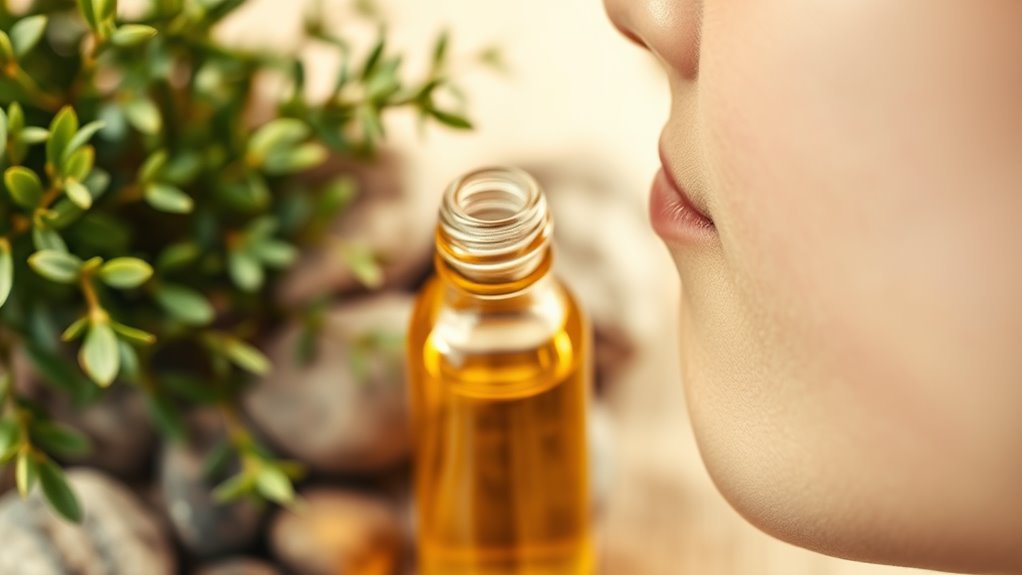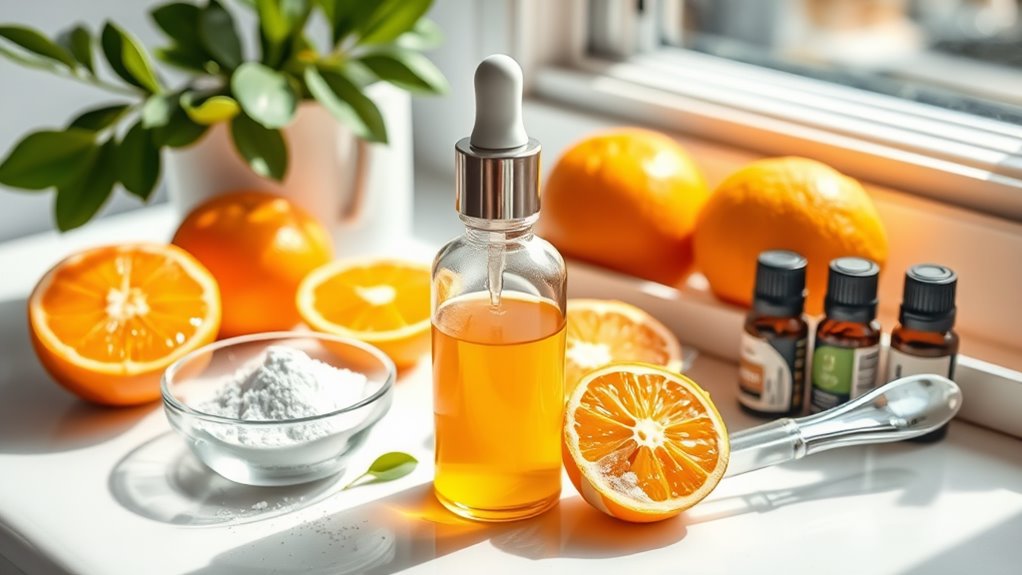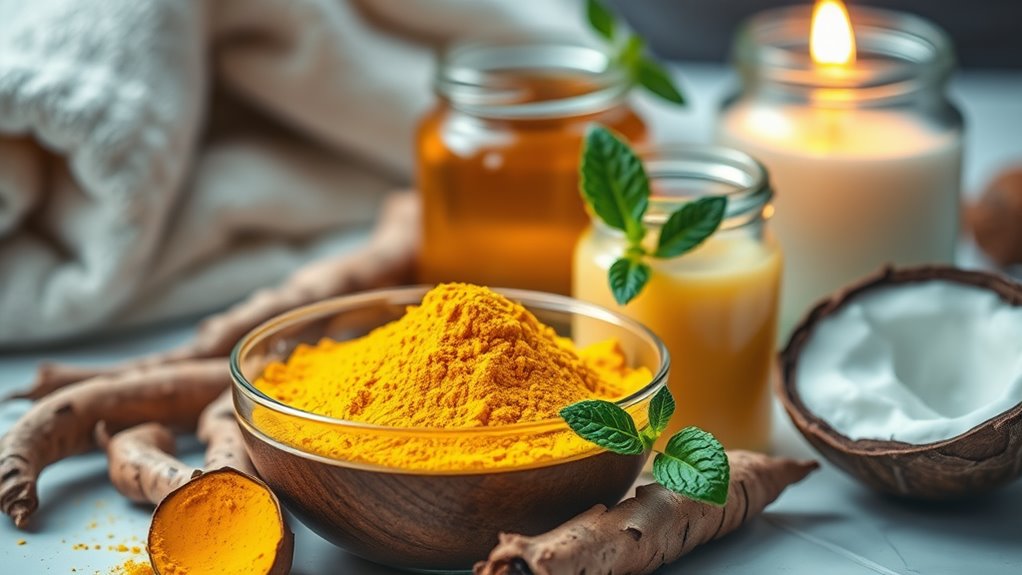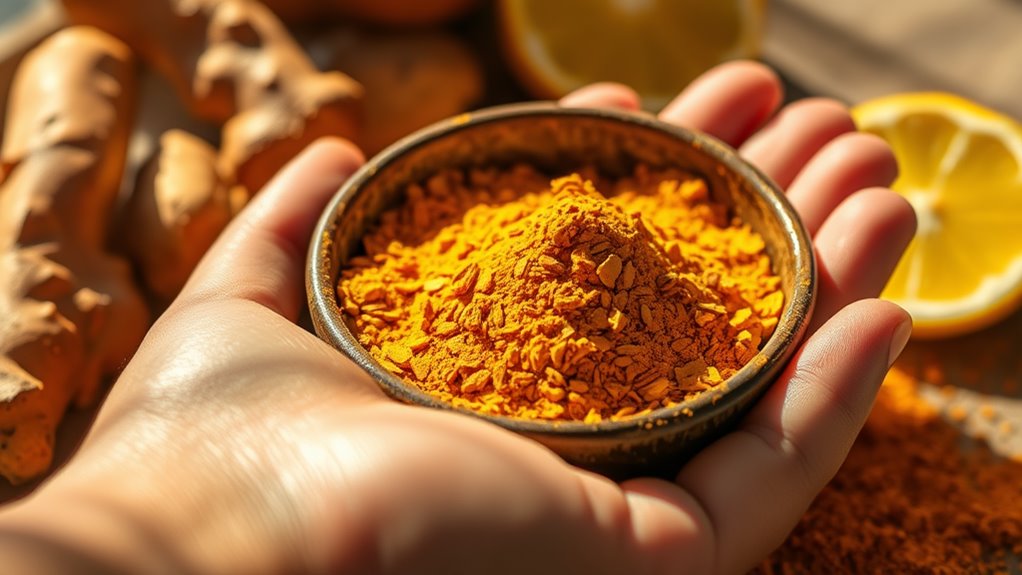This Natural Oil Helped Fade My Facial Scars
Rosehip oil can notably fade your facial scars and transform your skin’s appearance. Packed with essential fatty acids, antioxidants, and vitamins, it promotes healing and supports collagen production. For the best results, apply a few drops to clean, damp skin, massaging gently into the scars. Consistency is key, so incorporate it into your daily routine. With time and patience, you’ll notice improvements. There’s much more to uncover about how to maximize its benefits for your skin!
Key Takeaways
- Rosehip oil is rich in essential fatty acids and antioxidants, which help promote skin healing and reduce the appearance of scars.
- The application of rosehip oil supports collagen synthesis, aiding in the skin’s remodeling phase for scar improvement.
- For best results, apply a few drops of rosehip oil to clean, damp skin and gently massage it into scars.
- Consistency in application, ideally at night, is crucial for achieving noticeable improvements in scar appearance over time.
- Combining rosehip oil with other natural remedies can enhance its effectiveness in fading facial scars.
My Journey With Facial Scars
When you look in the mirror and see facial scars, it’s hard not to feel a mix of emotions. You might remember the incidents that caused them, or feel self-conscious about how they affect your appearance.
Your journey with scar removal can be challenging, but it’s also an opportunity for growth. Understanding the options available is essential. You’ve likely researched treatments, from over-the-counter creams to professional procedures, each offering different results.
Embrace the process and stay committed to your goals. As you explore natural remedies, you’ll discover effective solutions that can help fade those scars over time. One such remedy is rosehip oil, known for its skin-healing compounds that can support the fading of scars.
What Is Rosehip Oil?
Rosehip oil, a powerful natural oil derived from the seeds of the wild rose bush, has gained popularity for its remarkable skin benefits.
This oil is rich in essential fatty acids, antioxidants, and vitamins, making it an excellent choice for anyone looking to enhance their skincare routine. When you apply rosehip oil, you’re not just moisturizing; you’re also nourishing your skin deeply. It easily absorbs, leaving no greasy residue, and works wonders in promoting a radiant complexion.
Its lightweight texture makes it suitable for all skin types, including oily and sensitive skin. As you incorporate rosehip oil into your regimen, you’ll likely notice improved skin texture and tone, elevating your overall skincare experience to new heights. Additionally, rosehip oil is known to combat common signs of aging, helping to reduce the appearance of fine lines and wrinkles.
The Science Behind Skin Healing
Understanding how skin heals can enhance your skincare routine, especially when using oils like rosehip. The skin undergoes several phases during its healing process: hemostasis, inflammation, proliferation, and remodeling.
In the inflammatory phase, growth factors and cytokines are released, signaling your body to repair itself. During proliferation, new cells and collagen form, while the remodeling phase strengthens the skin’s structure.
Rosehip oil, rich in vitamins A and C, supports collagen synthesis and reduces inflammation, making it an excellent ally in this process. By incorporating such oils, you’re not just moisturizing; you’re actively promoting cellular regeneration and enhancing your skin’s natural healing capabilities. Additionally, oils like jojoba oil can help maintain skin elasticity, further supporting the healing process.
Understanding these mechanisms empowers you to make informed choices for effective skin recovery.
How I Used Rosehip Oil
After discovering the benefits of rosehip oil, I decided to incorporate it into my daily skincare routine.
Each morning and evening, you’ll want to apply a few drops directly to your clean, damp skin. Gently massage the oil into your scars and surrounding areas, ensuring even application.
You can mix it with your favorite moisturizer for added hydration, or use it alone for a concentrated treatment. Pay attention to areas that need extra care, allowing the oil to absorb fully before applying other products.
Consistency is key, so make it a non-negotiable part of your regimen. Over time, you’ll notice how this powerhouse oil helps promote skin regeneration and improves overall texture. Additionally, incorporating other natural remedies can enhance the effectiveness of your skincare routine.
Enjoy the process!
Timeline of Results
As you start using natural oils like rosehip oil, it’s important to remember that results won’t happen overnight.
Initially, you may notice your skin feeling more hydrated and nourished within the first week.
After about four to six weeks, you might begin to see subtle improvements in the texture and tone of your scars.
By the two to three-month mark, many users report more significant fading, as the oil works to promote cellular regeneration and collagen production.
However, every individual’s skin responds differently, so patience is key.
Consistency in application is essential; stick to your routine to achieve the best results.
Incorporating natural remedies can further enhance the effectiveness of your skincare regimen.
With time and dedication, you’ll likely be pleased with the transformation your skin undergoes.
Additional Benefits of Rosehip Oil
Not only does rosehip oil help fade facial scars, but it also offers a wealth of additional benefits for your skin. This versatile oil is packed with essential fatty acids, vitamins, and antioxidants that contribute to overall skin health.
Here’s a quick overview of its benefits:
| Benefit | Description | Impact |
|---|---|---|
| Hydration | Deeply moisturizes the skin | Improves texture |
| Anti-aging | Reduces fine lines and wrinkles | Promotes youthful glow |
| Brightening | Evens skin tone | Enhances radiance |
| Soothing | Calms irritated skin | Reduces redness |
| Acne-fighting | Helps balance oil production | Minimizes breakouts |
Incorporating rosehip oil into your routine can elevate your skincare game considerably.
Tips for Maximizing Effectiveness
To maximize the effectiveness of rosehip oil for fading facial scars, it’s essential to apply it correctly and consistently. Here are some tips to help you master its use:
-
Cleanse Your Skin: Start with a gentle cleanser to remove any impurities, ensuring the oil penetrates effectively.
-
Apply on Damp Skin: After cleansing, apply rosehip oil to slightly damp skin to enhance absorption.
-
Use a Consistent Routine: Incorporate the oil into your daily skincare routine, ideally at night, for continuous benefits.
-
Massage Gently: Use circular motions to massage the oil into your scars, promoting circulation and aiding absorption.
Final Thoughts on Natural Remedies
While many people seek quick fixes for facial scars, natural remedies like rosehip oil offer a gentler, more holistic approach.
Embracing these methods allows you to nurture your skin without harsh chemicals. You’re harnessing the power of nature, tapping into essential nutrients that promote healing and regeneration.
Consistency is key; integrating these oils into your daily routine can lead to remarkable improvements over time. Remember, patience is crucial—results won’t appear overnight, but with dedication, you’ll notice your scars fading.
Additionally, always consider your skin type and conduct patch tests to avoid adverse reactions.
Frequently Asked Questions
Can Rosehip Oil Be Used on All Skin Types?
Absolutely, you can use rosehip oil on all skin types. It’s lightweight and non-comedogenic, making it ideal for oily, dry, or sensitive skin. Just patch test first to guarantee compatibility and avoid potential irritation.
How Long Does a Bottle of Rosehip Oil Last?
A bottle of rosehip oil typically lasts about three to six months, depending on usage. If you’re consistent with application, you’ll find it’s a valuable addition to your skincare routine for lasting results.
Are There Any Side Effects of Using Rosehip Oil?
Using rosehip oil can lead to side effects like skin irritation or allergic reactions, especially if you’re sensitive. Always perform a patch test before full application to guarantee your skin reacts positively and safely.
Can I Mix Rosehip Oil With Other Oils?
You can absolutely mix rosehip oil with other oils. Just guarantee they complement each other’s properties for better absorption and benefits. Experimenting can enhance your skincare routine, but always patch test first to avoid irritation.
Is Rosehip Oil Safe for Sensitive Skin?
Yes, rosehip oil’s generally safe for sensitive skin. It’s lightweight and packed with vitamins. Just patch test first to make sure you won’t react, and you’ll likely enjoy its soothing benefits without any issues.





